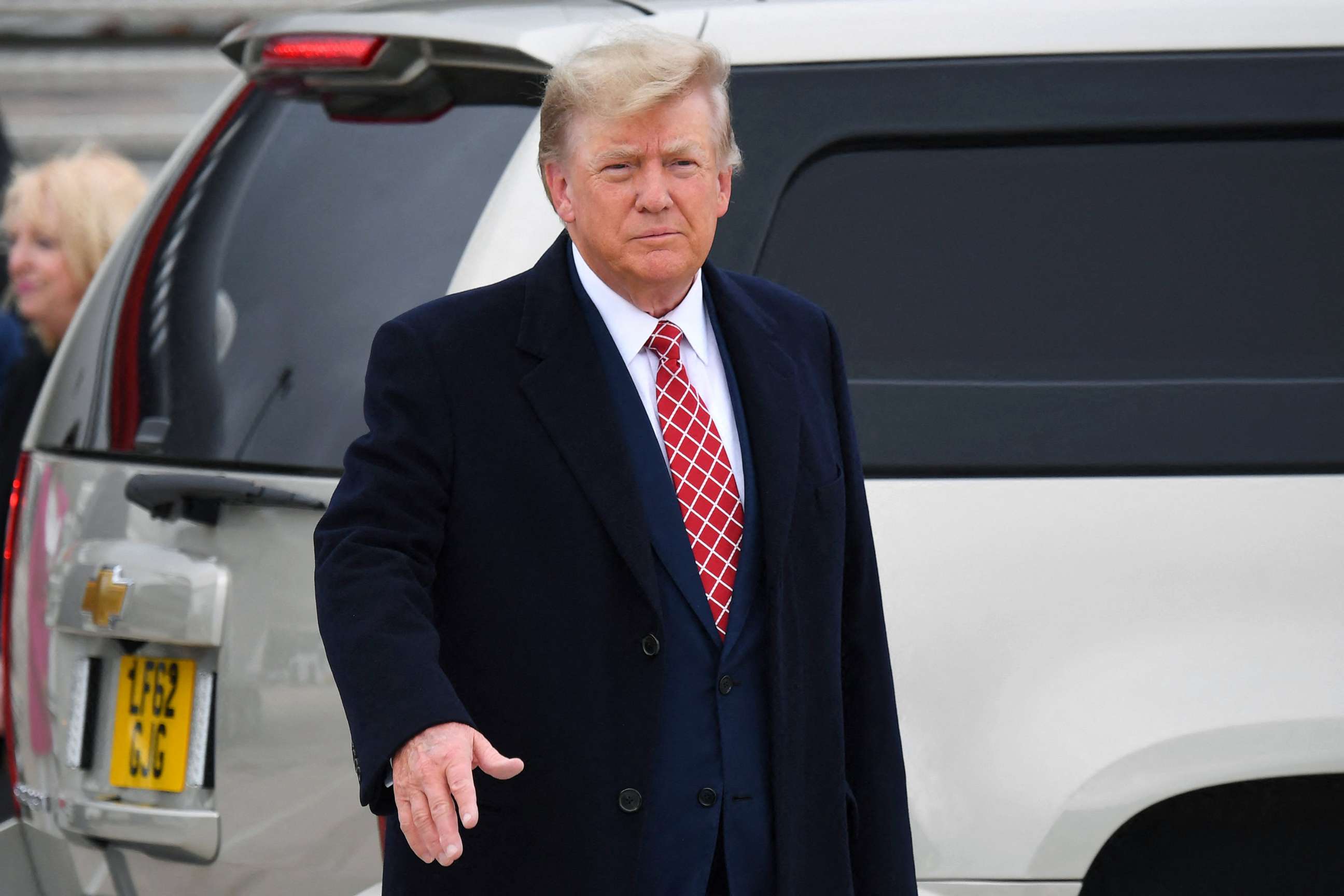Trump seeks to move hush-money case to federal court because he was president during alleged crime
The judge also asked the parties to agree to a trial held in early 2024.
Former President Donald Trump on Thursday sought to move his New York City criminal case to federal court since, his lawyers said, "the indictment charges [him] for conduct committed while he was President of the United States that was within the 'color of his office.'"
Trump has pleaded not guilty to a 34-count indictment charging him with falsifying business records in connection with hush money paid to adult film actress Stormy Daniels before the 2016 presidential election.
Trump's then-personal attorney Michael Cohen wrote the check and Trump reimbursed him with a series of monthly payments.
"This case is unprecedented in our nation's history. Never before has a local elected prosecutor criminally prosecuted a defendant either for conduct that occurred entirely while the defendant was the sitting President of the United States or for conduct that related to federal campaign contribution laws," Trump's defense attorney Susan Necheles wrote in the motion.
Trump's filing called the indictment "politically motivated" -- brought because Manhattan District Attorney Alvin Bragg "disfavored President's Trump's acts and policies as President of the United States."
Necheles argued federal courts have so-called "protective jurisdiction" over this case.
Trump himself has maintained prosecutors have "no case" and wrote on social media last month, "There was nothing done illegally!"
Defense attorney Todd Blanche informed Judge Juan Merchan, who is presiding over the case in New York state Supreme Court, about Trump's intention at the conclusion of a hearing earlier Thursday related to a protective order in the case.
Prosecutors did not immediately address it. A spokeswoman for Bragg said later Thursday that "we are reviewing the notice of removal and will file an appropriate response in court."

Merchan asked in court that both sides agree to a trial date in either February or March 2024, putting Trump's trial in the middle of primary season as he seeks the presidency for a third time.
Once the date is set, the judge said no one associated with the case, including Trump, should schedule anything to interfere.
"He cannot agree to any speaking engagements, appearances," Merchan said.
Merchan agreed to a request from the Manhattan district attorney's office for an order meant to prevent Trump from attacking certain individuals associated with the case or speaking about specific evidence obtained through discovery. But he said he would not stop Trump from speaking generally about the case on the campaign trail.
"I'm straining to give him every opportunity to make his candidacy," Merchan said. "This is not a gag order."
Merchan also agreed with the district attorney's office to set up a virtual hearing Trump will be required to attend at which the protective order will be read to him.
Assistant District Attorney Catherine McCaw said in court that Trump "has an extensive history" of making inflammatory remarks about witnesses, prosecutors and others associated with legal matters pending against him. However, she said, Trump will continue to have "many avenues" to discuss the case.
Blanche said he did not object to an order "limiting dissemination" of evidence by Trump on social media but he insisted Trump's public defense "may include commentary on evidence."
"Obviously Mr. Trump is different," Merchan conceded. "It would be foolish of me to say he isn't. He's a former president and he's running again."
The judge added that Trump's special status comes with a responsibility to recognize "his words do have consequences."




